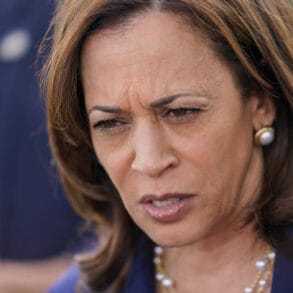Prominent Republicans who have parted ways with the GOP face little future in politics—whether they attempt to align with Republicans or Democrats. Although often treated as a group, it’s more accurate to view them as individuals. The only thing they share is their disdain for Donald Trump, but their paths diverge significantly.
Some of them limit their opposition strictly to Trump, retaining their GOP affiliation and continuing to support Republican candidates down the ballot. Others still claim to hold conservative values and call themselves Republicans but support the Democratic Party more broadly. And then there are those who have completely left the GOP, abandoning any conservative principles they may have once held.
Given the diversity of their situations, it’s best to examine them one by one.
Former Wyoming Congresswoman Liz Cheney stands out among the dissidents. She was one of the most steadfast conservatives in Congress but crossed the line when she voted to impeach Trump. In response, then-House Speaker Kevin McCarthy removed her from leadership—turning her into a political adversary.
(I’ve previously criticized McCarthy for this poor decision. If Cheney had remained in her leadership role, it’s unlikely she would have joined the January 6 Committee or that she and her father would be endorsing Vice President Harris, in my opinion.)
After losing her seat in Congress, Cheney’s only political relevance now lies in her role as a tool for the Democrats. Once her usefulness fades, her political career will be over. She might, however, land a job with a left-leaning news outlet, as some others have.
Regarding former Vice President Dick Cheney, his endorsement of Harris is trivial. He is a relic of past political eras and didn’t even make the announcement himself—Liz did.
Former Vice President Mike Pence has publicly stated he won’t vote for Trump or for Harris. He remains a Republican, but few GOP candidates are seeking his endorsement. He is fading into political obscurity, which is unfortunate because I always admired him, even when Trump didn’t.
Former Congressman Adam Kinzinger, following in Cheney’s footsteps, has gone a step further by supporting Harris and fundraising for Democratic candidates up and down the ticket. Like Cheney, Kinzinger lost his House seat. He has already secured a deal with left-wing media, regularly appearing as a paid contributor.
Former Republican National Chairman Michael Steele has fully integrated into the Democratic Party and its media apparatus. He occasionally calls himself a Republican, but that’s disingenuous. His party switch can easily be explained by financial incentives—he’s earning substantial sums from MSNBC to echo their party lines. His future hinges entirely on his media ratings.
Attorney George Conway never had much of a political career, and he’s unlikely to have one moving forward. His claim to fame is being married to Trump’s 2016 campaign manager, Kellyanne Conway. His animosity toward Trump arose only after he was denied a job in the Trump administration. He co-founded the anti-Trump Lincoln Project and has since launched his own PsychoPAC. Conway’s obsessive hatred of Trump overshadows any political or philosophical coherence. His vitriolic TV appearances have even caused left-leaning outlets to limit his airtime.
Once a leading conservative voice, Bill Kristol has largely faded from public view. His father, Irving Kristol, was a conservative icon, and the younger Kristol founded the now-defunct conservative publication, The Weekly Standard. After shifting to the left, Kristol became editor-at-large for The Bulwark, a publication that once held conservative values but is now dominated by anti-Trumpers. He used to be a frequent guest on MSNBC and CNN but is seen much less these days. Kristol had a brief political stint as chief of staff for Vice President Dan Quayle.
A growing number of former Republicans have now aligned themselves with the Democratic Party and its increasingly left-wing ideology. They are fixtures on television, with some hosting their own shows—like MSNBC’s Nicole Wallace and Joe Scarborough, who, like Steele, have their own platforms.
The GOP apostate class includes people like former Florida Congressman David Jolly, former Illinois Congressman Joe Walsh, strategist Susan Del Percio, GOP activist Ana Navarro, former Pence aide Olivia Troye, John McCain aide Steve Schmidt, Bulwark founder Charlie Sykes, Bulwark publisher Sara Longwell, Bulwark contributor Tim Miller, and Bush/McCain advisor Mark McKinnon, among others.
Those affiliated with The Bulwark still maintain that the publication is conservative, though they market it as politically neutral. In reality, it functions as an anti-Trump, anti-Republican, and anti-conservative platform.
Recently, 200 aides to McCain, Bush, and Romney endorsed President Biden, now supporting Harris. While this level of party-switching is unusual, the more pressing question is whether it will have any real impact.
Most of these figures owe their current visibility to their anti-Trump stance. Once Trump is no longer relevant in politics, their usefulness will fade, and they’ll be left without influence.
When Cheney announced her support for Harris, the left-wing media called it “blockbuster news” and a “major development.” In reality, it was as predictable as the sun rising tomorrow.
As for their impact on the election, I believe any influence these GOP defectors have on Republican voters has already been factored into the numbers. There’s nothing new in their narrative—they’ve been repeating it in the media for years. Eventually, many of these figures will fade into irrelevance, and some already have.
That’s the state of things.








